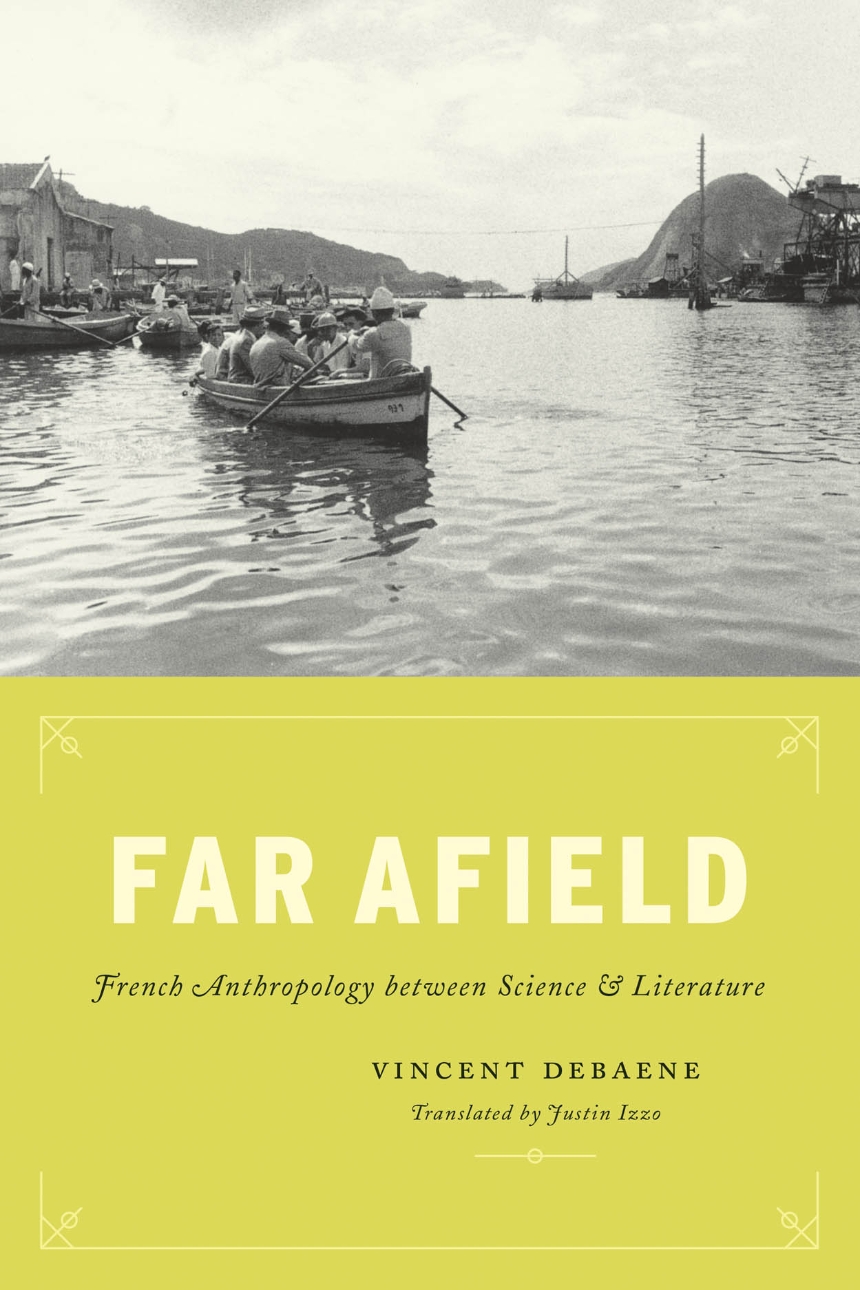Far Afield
French Anthropology between Science and Literature
The relationship between anthropology and literature in France is one of careful curiosity. Literary writers are wary about anthropologists’ scientific austerity but intrigued by the objects they collect and the issues they raise, while anthropologists claim to be scientists but at the same time are deeply concerned with writing and representational practices. Debaene elucidates the richness that this curiosity fosters and the diverse range of writings it has produced, from Proustian memoirs to proto-surrealist diaries. In the end he offers a fascinating intellectual history, one that is itself located precisely where science and literature meet.
424 pages | 6 x 9 | © 2014
Anthropology: Cultural and Social Anthropology
History: European History, History of Ideas
Literature and Literary Criticism: Romance Languages
Reviews
Table of Contents
Preface to the English Edition
Introduction
The Ethnographer’s Two Books
Science and Literature: A Genealogy
I Ethnography in the Eyes of Literature
1 The Birth of a Discipline
Breaks and Discontinuities
Fieldwork
Ethnography’s Prestige
2 The French Exception
The Speculative Origins of French Ethnography
“Everything involving the exercise of the mind”
Malinowski: A Counterexample
3 Rhetoric, the Document, and Atmosphere
From the Science of Customs to Total Social Facts
Evocative Documents
The Supplement to the Ethnographer’s Expedition
The Impossible Return to Belles Lettres
The Human Document and the Living Museum
4 “A literature that is not meaningless like our own”
“Some of the innocent flavor of the original text”
L’Île de Pâques: 1941, 1951
Mauss, Fieldwork, and Ethnographic Documents
5 The Lost Unity of Heart and Mind
The Philosophical Voyage as Paradise Lost
From the Enlightenment to the Renaissance
A “New Humanism"
II L’adieu au Voyage
6 “Ceci n’est pas un voyage”
Travel: Polemics, Prestige, and Legitimacy
The Ethnographer, the Adventurer, and the Tourist
Spatializing Cultural Difference
L’Afrique fantôme and Tristes Tropiques: Impossible Intimacy
“This is not travel writing”
7 Les Flambeurs d’hommes:
The Ethiopian Chronicles of Marcel Griaule
The Ethnographer and the Littérateur
The Inadequacies of the Ethnographic Document
The Impossible Evocative Document
Excursus: Sociology and Cruelty
Ethnography and Cultural Knowledge
8 L’Afrique fantôme: Leiris and the “Living Document”
The Impossible Foreword
Reading L’Afrique fantôme
From Communion to Representation
Theatricality and the Family
Living Document, “Phantom” Africa
9 Tristes Tropiques:
The Search for Correspondence and the Logic of the Sensible
“The boat entered the harbor at 5:30 in the morning”
From Conrad to Proust
From the Deserts of Memory to the Science of the Concrete
History, Entropy, “Entropology”
“Doorways that reveal other worlds and other times”
III Literature in the Eyes of Ethnography
10 Literature, Letters, and the Social Sciences
Lanson, 1895: The Dispossession of the Artist by the Scientist
The Man of Letters and the Social Division of Labor
Humanities, Sciences, and Counterrevolutionary Thought
Lanson, 1904: From Literature to Science
11 Disputes over Territory
Ramon Fernandez, 1935: A Conversation between
the Scientist and the Essayist
Breton, 1948–1966: “You will never really know the Mayas”
Bataille, Barthes, Blanchot, 1956: The Reception of Tristes Tropiques
12 1955–1970: A New Deal
The End of the Documentary Paradigm
Ethnography and Literature in the “Real World”
(Post)colonial Literature and the Ethnographic
The “Terre humaine” Series: Literature from Within and Without
Barthes and “Structures”
Barthes, 1967: From Science to Literature
Conclusion
Literature
Ethnography
Acknowledgments
Notes
Bibliography
Index
